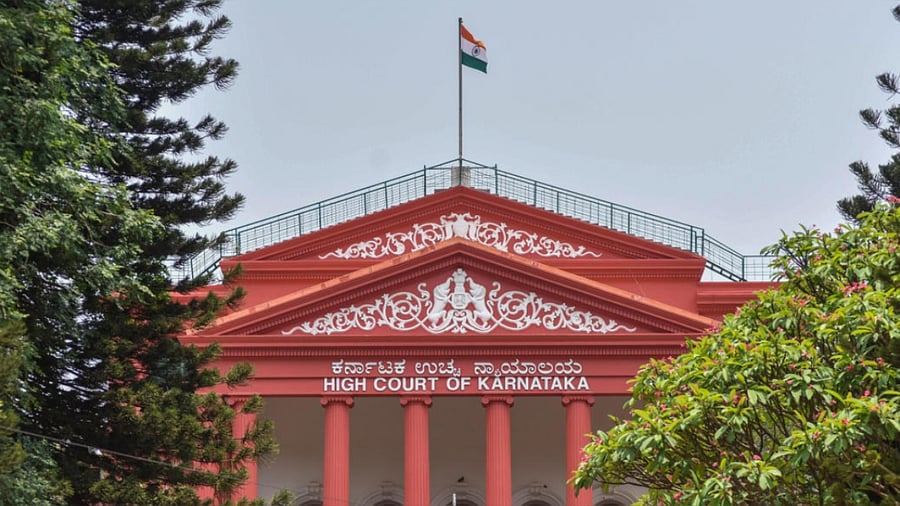
The Karnataka High Court.
Credit: DH File Photo
The high court has dismissed the appeal filed by a woman seeking family pension, who claimed to be the second wife of the deceased government employee when his first marriage was subsisting.
“Recognizing such relations arising from second marriage during the subsistence of first one is detrimental to public interest inasmuch as that would facilitate directly or indirectly the employees contracting the second marriage, which is legally impermissible,” a division bench comprising Chief Justice Prasanna B Varale and Justice Krishna S Dixit said.
The appellant Mahalakshmamma, a resident of Chikkanayakanahalli taluk in Tumakuru district, claimed that she had married Nanjundaiah, a retired driver working for Hassan Zilla Panchayat.
Nanjundaiah had died in January 2015 whilst in service and Mahalakshamma submitted a representation seeking family pension, citing that her husband’s first wife Vijayamma had pre-deceased him on April 6, 2011.
The authorities rejected Mahalakshmamma’s representation citing that only Vijayamma’s name is nominated in service records and that the provisions of Karnataka Civil Service (Conduct) Rules would not permit the second marriage during subsistence of first marriage. Mahalakshmamma moved an appeal after her petition challenging the rejection was dismissed by the single judge in December 2022.
The division bench noted that in such instances there is only limited status of legitimacy of children begotten there from, by virtue of section 16 of Hindu Marriages Act, 1955. The bench also said that family pension is payable to the “wife”, and not to those whose marriage is ‘no marriage’ in the eye of law.
The court also said that statutorily bigamy is an offence punishable under sections 17 of the Hindu Marriage Act and the provisions of Rule 294 of the Karnataka Civil Services Rules provide for sanctioning family pension to the family of a government servant, after his demise in harness or post-retirement.
“We decline indulgence in the matter broadly agreeing with the reasoning of the single judge that the appellant was not the legally wedded wife for the purpose of grant of family pension. It hardly needs to be stated that amongst Hindus monogamy is not only ideal but a legal prescription and therefore marriage contracted when the first wife is alive, cannot be taken cognizance of by law, subject to all just exceptions into which the argued case of the appellant does not fit,” the court said.
